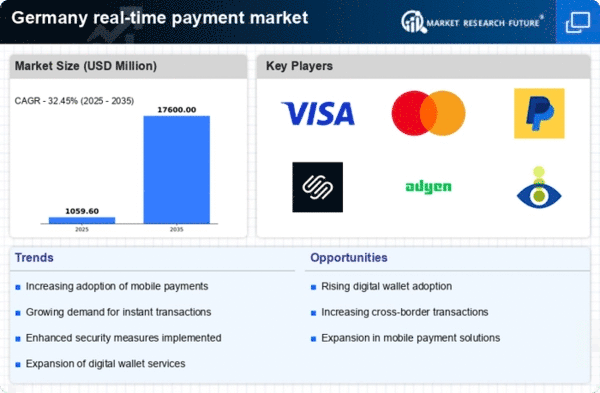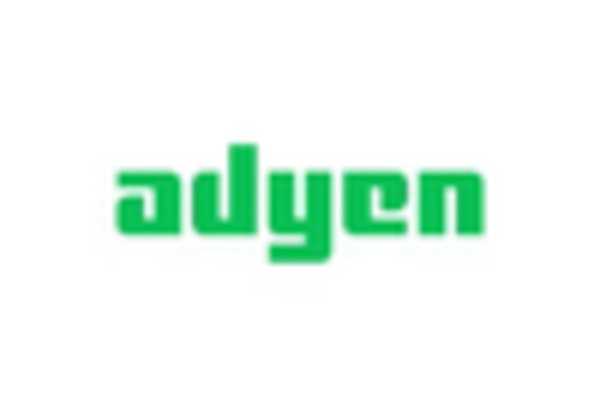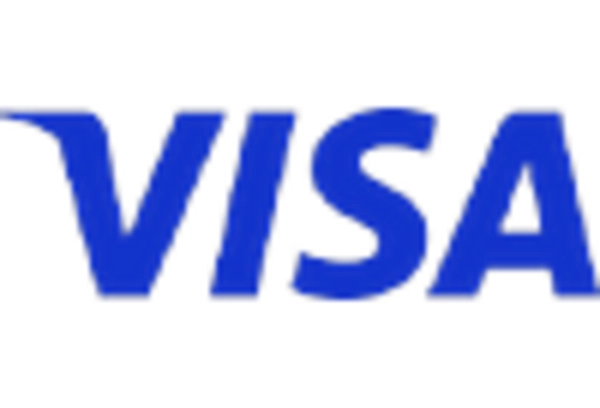Regulatory Support and Frameworks
Regulatory support plays a crucial role in shaping the real-time payment market in Germany. The European Central Bank has been actively promoting instant payment solutions, which has led to the establishment of a robust regulatory framework. This framework aims to ensure consumer protection and enhance competition among payment service providers. As of 2025, approximately 70% of payment service providers in Germany are compliant with these regulations, fostering a more secure and efficient payment environment. This regulatory backing is likely to encourage further investment in the real time-payment market, driving innovation and growth.
Rise of E-commerce and Digital Services
The rise of e-commerce and digital services is significantly impacting the real-time payment market in Germany. As online shopping continues to gain traction, the demand for seamless payment solutions is increasing. In 2025, e-commerce sales in Germany are expected to reach €100 billion, with a substantial portion of these transactions requiring real time payment capabilities. This trend is pushing retailers to adopt real time payment systems to enhance customer experience and streamline operations. The growth of e-commerce is likely to further propel the real time-payment market, as businesses seek to provide efficient payment options.
Consumer Demand for Instant Transactions
There is a growing consumer demand for instant transactions in the real-time payment market in Germany. As digitalization continues to reshape consumer behavior, individuals increasingly expect immediate payment solutions. Surveys indicate that around 75% of consumers prefer real time payments for their convenience and speed. This shift in consumer preference is prompting businesses to adopt real time payment solutions to meet customer expectations. Consequently, the market is likely to expand as more businesses recognize the necessity of offering instant payment options to remain competitive.
Collaboration Among Financial Institutions
Collaboration among financial institutions is emerging as a key driver in the real-time payment market in Germany. Banks and fintech companies are increasingly partnering to enhance payment solutions and expand their service offerings. This collaborative approach is expected to lead to the development of innovative payment products that cater to diverse consumer needs. In 2025, it is projected that partnerships between traditional banks and fintech firms could account for up to 40% of new payment solutions in the market. Such collaborations are likely to accelerate the growth of the real time-payment market, providing consumers with more options.
Technological Advancements in Payment Systems
The real-time payment market in Germany is experiencing a surge due to rapid technological advancements in payment systems. Innovations such as blockchain technology and artificial intelligence are enhancing transaction speed and security. In 2025, it is estimated that the adoption of these technologies could increase transaction efficiency by up to 30%. Furthermore, the integration of contactless payment methods is becoming more prevalent, with a reported 60% of consumers preferring this method for its convenience. As technology continues to evolve, the real time-payment market is likely to see further enhancements, making transactions faster and more secure.
















